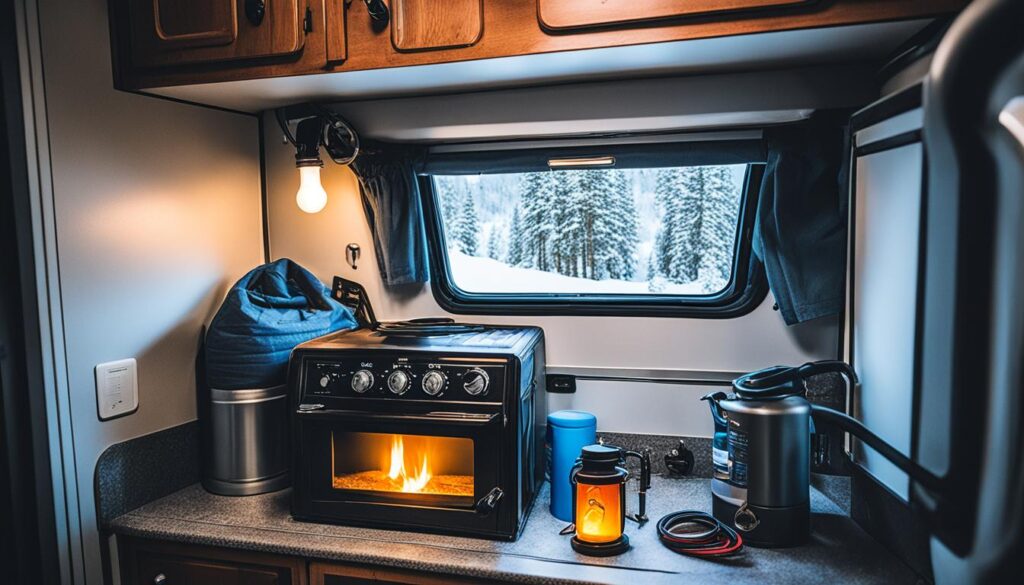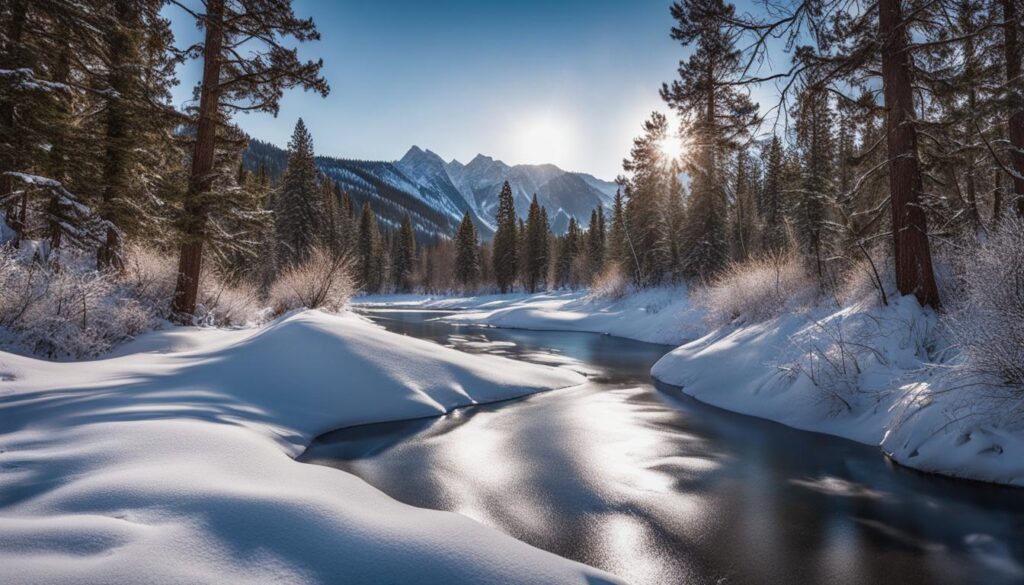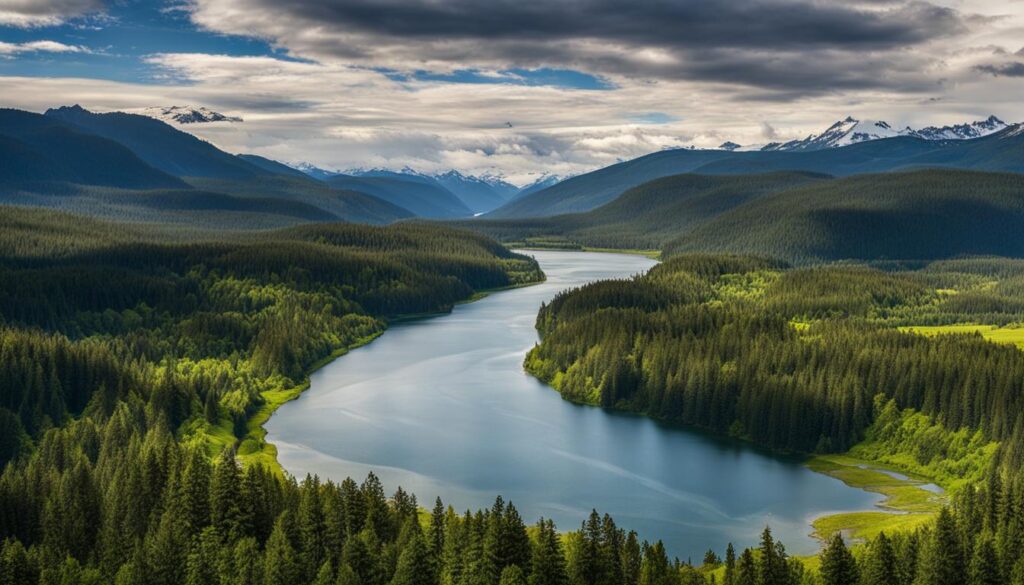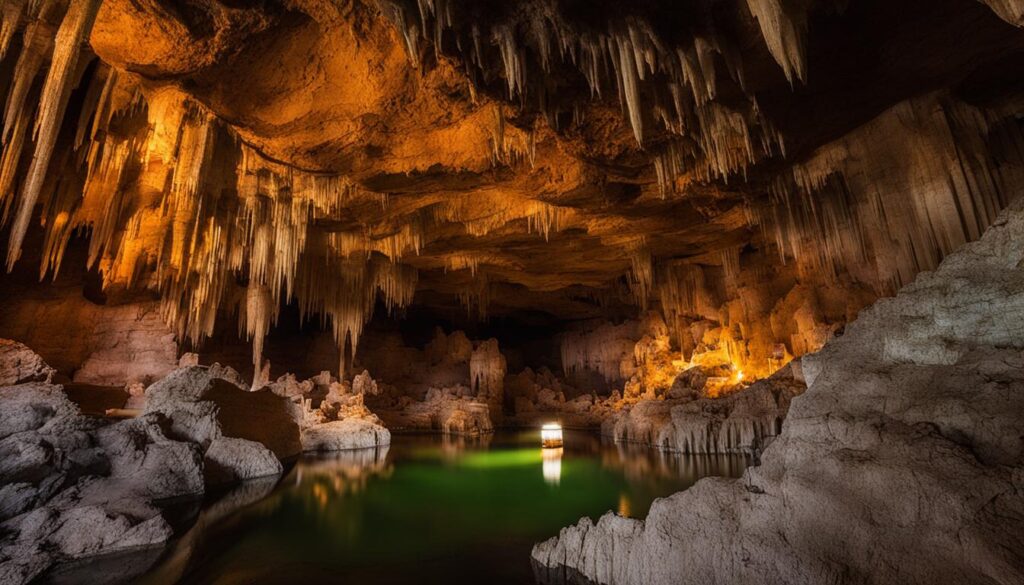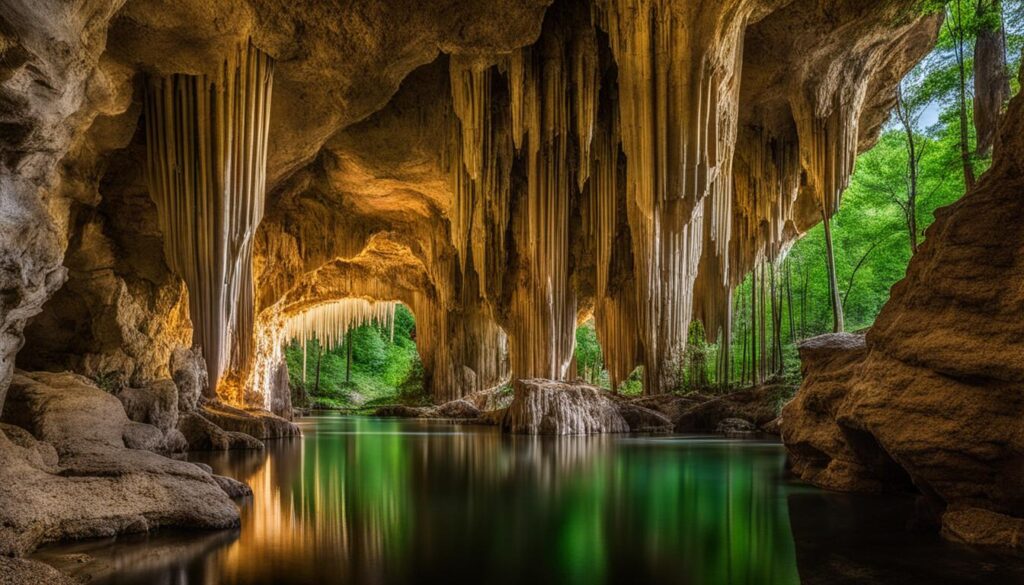Have you ever wondered how long it takes for your RV water heater to heat up? It’s an essential question for anyone looking to optimize their water usage and maximize efficiency during their travels. Whether you’re planning a long road trip or a weekend camping getaway, knowing the heating time of your RV water heater can make a significant difference in your overall comfort and convenience. So, how long does it actually take for an RV water heater to heat up?
The answer may vary depending on several factors, including the capacity and power source of your water heater. Generally, it takes about 20 to 30 minutes for the water temperature to reach the desired level after turning on the heater. However, some RV water heaters have fast-recovery capabilities and can heat a specific quantity of water more quickly. To fully understand the heating time and other important aspects of RV water heaters, let’s dive deeper into how they work and the various types available.
Key Takeaways:
- RV water heaters typically take about 20 to 30 minutes to heat up.
- The heating time may vary depending on the capacity and power source of the water heater.
- Fast-recovery RV water heaters can heat a specific quantity of water more quickly.
- There are two main types of RV water heaters: tank-based and tankless systems.
- Considerations when choosing an RV water heater include the installation process, customer service, capacity, and energy source.
Contents
Understanding How RV Water Heaters Work
RV water heaters play a crucial role in providing hot water while you’re on the road. To understand how they function, let’s delve into their inner workings.
Water Heating Process
When water is supplied to your RV, it flows into the water heater’s tank. Inside the tank, the water is heated using either a gas burner or an electric element, depending on the type of water heater you have.
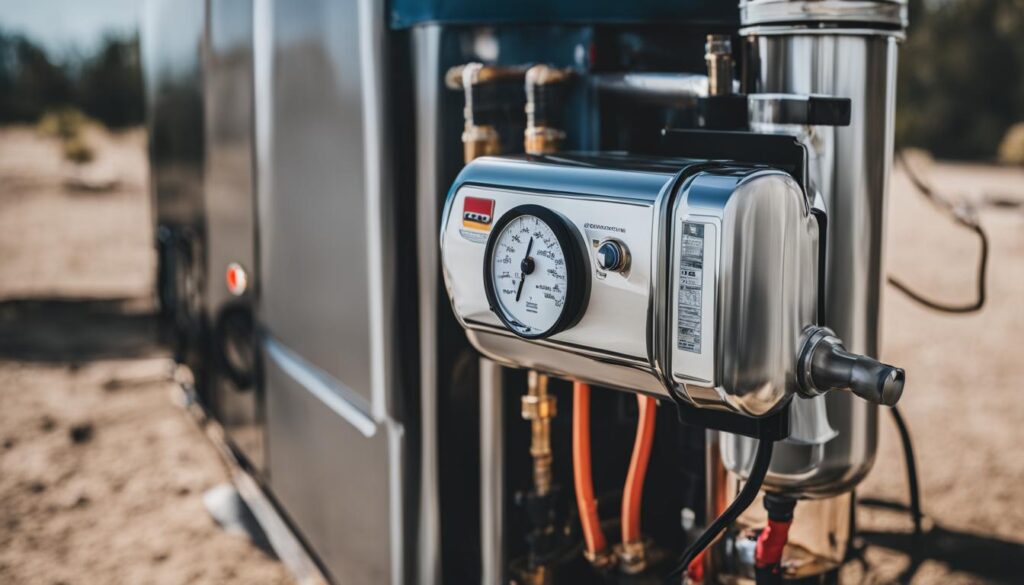
The gas burner or electric element vigorously heats the water, raising its temperature to a desirable level. Once the water reaches the desired temperature, it is ready to be used for various purposes, such as showering, washing dishes, or cleaning.
Hot Water Pressure Relief Valve
RV water heaters are equipped with a hot water pressure relief valve, which is an essential safety feature. This valve automatically releases excess pressure if it exceeds the safe limit, preventing any potential damage or accidents. It effectively maintains the stability and safety of the water heater system.
Common RV Water Heater Brands
Two prominent brands in the RV water heater market are Dometic Atwood and Suburban. These brands are known for their reliability and high-quality products. The typical tank capacity for RV water heaters ranges from 6 to 12 gallons, ensuring an ample supply of hot water during your travels.
| Brand | Key Features |
|---|---|
| Dometic Atwood | Reliable, high-quality construction |
| Suburban | Dependable performance, wide range of options |
Understanding how RV water heaters work is essential for optimizing their performance and ensuring a consistent supply of hot water. Whether you choose a gas or electric system, these reliable appliances provide the comfort and convenience of hot water on your RV adventures.
Water Heaters Duration
The heating time for an RV water heater to heat the water is typically around 20 to 30 minutes after turning on the heater. However, the duration can vary depending on the capacity and power source of the water heater.
Some RV water heaters are fast-recovery models that can quickly heat a certain quantity of water, usually between 12 and 20 gallons per hour. The water temperature reached will depend on the desired setting.
Fast-Recovery Models
Fast-recovery models of RV water heaters are designed to heat up water quickly, ensuring a constant supply of hot water for your RV needs. These models have specialized features that allow them to heat a larger quantity of water in a shorter period of time compared to standard models.
With fast-recovery models, you can enjoy hot showers, clean dishes, and warm water for various activities without worrying about running out of hot water.
Here is a comparison table highlighting some popular RV water heater fast-recovery models:
| Brand | Recovery Rate (Gallons per Hour) |
|---|---|
| Suburban | 15 |
| Atwood | 12 |
| Girard | 20 |
| Mor-Flo | 18 |
| Trauma | 16 |
The Different Types of RV Water Heaters
When it comes to RV water heaters, there are two main types to choose from: tank-based water heaters and tankless systems. Each type has its own advantages and considerations, allowing RV owners to select the option that best fits their needs and preferences.
Tank-Based Water Heaters
Tank-based water heaters are the traditional choice for RVs. They feature a storage tank where water is stored and heated using either gas or electric power. Gas water heaters tend to heat water faster than electric ones, making them a popular choice for those who prioritize quick heating times. However, keep in mind that gas water heaters require a propane supply to function.
Tankless Systems
If you’re looking for a more efficient and space-saving option, tankless water heaters might be the way to go. Unlike tank-based water heaters, tankless systems do not have a storage tank. Instead, they heat the water on demand using a heat exchanger. This means that hot water is available instantly, without the need to wait for a tank to heat up. Tankless water heaters are generally smaller and lighter than tank-based models, making them ideal for RVs with limited space.
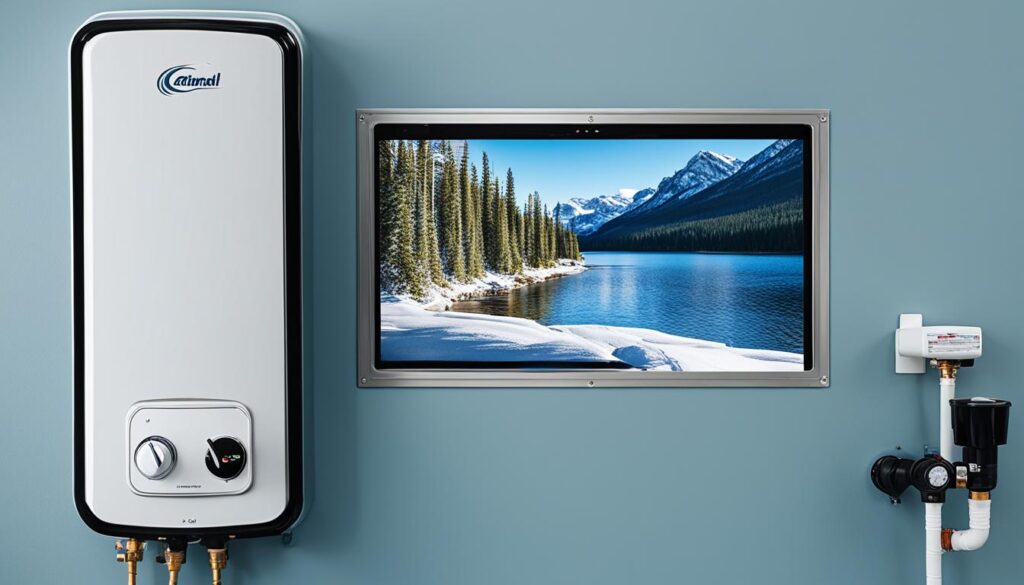
When choosing between tank-based and tankless RV water heaters, consider factors such as your desired heating time, available space, power source compatibility, and budget. Gas water heaters are typically faster at heating water, but electric water heaters offer convenience for campsites with electrical hookups. Tankless systems provide instant hot water but may require a larger upfront investment. Assess your unique needs and preferences to determine the best option for your RV.
The Advantages and Drawbacks of RV Water Heaters
When it comes to RV water heaters, there are two main types to consider: tank-based water heaters and tankless systems. Each type has its own set of advantages and drawbacks, giving you options to choose from based on your specific needs and preferences.
Advantages of Tank-Based Water Heaters
Tank-based water heaters offer the convenience of storing hot water, allowing for immediate availability whenever you need it. This means you won’t have to wait for the water to heat up, making them ideal for quick showers or washing dishes on the go. Additionally, tank-based water heaters are typically less expensive than tankless systems, making them a more budget-friendly option for RV owners.
Drawbacks of Tank-Based Water Heaters
While tank-based water heaters have their advantages, they also come with a few drawbacks. One of the main drawbacks is their size, as they take up valuable space in your RV. Additionally, tank-based water heaters have a limited supply of hot water. Once the hot water stored in the tank runs out, you will need to wait for the water to heat up again. This can be inconvenient, especially if multiple people need access to hot water at the same time.
Advantages of Tankless Water Heaters
Tankless water heaters provide a continuous supply of hot water, eliminating the need to wait for the water to heat up. This can be particularly beneficial if you have a larger family or if multiple people will be using hot water simultaneously. In addition, tankless systems are smaller and lighter than tank-based water heaters, making them a space-saving option for RVs with limited storage capacity.
Drawbacks of Tankless Water Heaters
While tankless water heaters offer advantages, they also have a few drawbacks to consider. One drawback is their higher price point compared to tank-based water heaters. Tankless systems typically cost more upfront, which may not be ideal for those on a tight budget. Additionally, installation of tankless systems can be more challenging and may require professional assistance. It’s important to factor in the additional installation costs and complexity when choosing this option.
In conclusion, when choosing an RV water heater, consider the advantages and drawbacks of both tank-based water heaters and tankless systems. Assess your specific needs, such as the amount of hot water required and the available space in your RV, to make an informed decision. Whether you opt for the convenience of a tank-based water heater or the continuous supply of hot water provided by a tankless system, ensure that it aligns with your RV lifestyle and enhances your overall camping experience.
Considerations When Choosing an RV Water Heater
When it comes to selecting the right RV water heater for your needs, there are several key factors to consider. These considerations include the installation process, customer service from the manufacturer, capacity, and energy source. By taking these factors into account, you can ensure that you make an informed decision and choose a water heater that will meet your requirements.
Installation Process
The installation process for an RV water heater can vary depending on the type and model you choose. Some water heaters may require professional installation, while others can be easily installed by DIY enthusiasts. It’s important to consider your own abilities and comfort level with installations before making a decision. If you’re unsure, it may be best to seek professional assistance to ensure proper installation and avoid any potential issues or damage.
Customer Service
An often overlooked consideration when choosing an RV water heater is the level of customer service provided by the manufacturer. A water heater is an investment, and it’s important to have confidence in the company that stands behind it. Research customer reviews and experiences to get an idea of the level of customer service provided by different manufacturers. Prompt and helpful customer service can make a significant difference in resolving any issues or concerns that may arise during the lifespan of your water heater.
Capacity
The capacity of an RV water heater refers to the amount of hot water it can produce and store at a given time. The capacity you need will depend on factors such as the size of your RV and the number of people using hot water. Larger RVs and families may require a water heater with a larger capacity to ensure an adequate and continuous supply of hot water. Consider your specific requirements and choose a water heater with a capacity that meets your needs.
Energy Source
RV water heaters can operate on different energy sources, such as gas or electricity. Electric water heaters are a great option if you frequently stay at campsites with electrical hookups, as they can efficiently heat the water using the available power source. On the other hand, gas water heaters are suitable for dry camping, where there may be no electrical connection available. Many RV owners prefer the flexibility of units that can operate on both gas and electric, allowing them to choose the energy source that best suits their current situation.
Maintenance
Maintenance plays a crucial role in the longevity and efficient operation of an RV water heater. Regular maintenance tasks, such as checking the condition of the anode, can help prevent corrosion and prolong the life of the water heater. The anode is a sacrificial rod made of a metal alloy that attracts corrosion and protects the tank. It’s important to follow the manufacturer’s guidelines for maintenance and perform routine checks to ensure the optimal performance and durability of your water heater.
Popular RV Water Heater Brands and Their Pros and Cons
When it comes to RV water heaters, several brands stand out in terms of durability and efficiency. Suburban offers a wide range of models, known for their reliability and longevity. These water heaters are designed to provide consistent hot water and are built to withstand the rigors of RV life. Additionally, Suburban offers excellent energy efficiency, helping to conserve power during your travels.
If you have a smaller RV and space is a concern, Atwood water heaters are a great option. These lightweight and compact models are perfect for RVs with limited storage areas. Despite their smaller size, Atwood water heaters deliver reliable performance and efficient heating capabilities. They are also known for their quick recovery time, ensuring a steady supply of hot water.
Mor-Flo is another brand that excels in the RV water heater market. With their advanced water heating solutions, Mor-Flo heaters offer high levels of energy efficiency and can help reduce water heating costs. These units are designed to provide consistent hot water temperatures, ensuring a comfortable experience during your travels.
For those looking for tankless water heaters, Girard is a reputable brand to consider. Girard specializes in tankless systems that provide an unlimited supply of hot water. These units are known for their quiet operation and compact design, making them a popular choice for RV owners who value convenience and efficiency.
Trauma offers both tank-based and tankless systems, allowing you to choose the option that best suits your needs. Their water heaters are designed with efficiency in mind, ensuring rapid heating and a constant supply of hot water. Whether you prefer the convenience of a tankless system or the reliability of a tank-based unit, Trauma has you covered.
When selecting an RV water heater, it’s essential to consider your individual needs and preferences. Each brand discussed – Suburban, Atwood, Mor-Flo, Girard, and Trauma – has its own pros and cons. By evaluating factors like durability, efficiency, and specific features, you can choose the water heater that meets your requirements, ensuring a comfortable and enjoyable RV experience.
FAQ
How long does it take for an RV water heater to heat up?
It typically takes about 20 to 30 minutes for the water to heat up after turning on the heater. However, the duration can vary depending on the capacity and power source of the water heater.
How do RV water heaters work?
RV water heaters work by heating the water in your vehicle using either a gas burner or an electric element. Water from your supply flows into the water heater’s tank, where it is heated before being ready for use.
What is the difference between tank-based and tankless RV water heaters?
Tank-based water heaters store water in a tank and heat it up using either gas or electric power. Tankless water heaters, on the other hand, do not have a storage tank and heat the water on demand using a heat exchanger.
What are the advantages and drawbacks of tank-based RV water heaters?
Tank-based water heaters have the advantage of storing hot water, making it immediately available when needed. However, they take up more space and have a limited supply of hot water compared to tankless systems.
What should I consider when choosing an RV water heater?
Important considerations when choosing an RV water heater include the installation process, customer service from the manufacturer, capacity, and energy source. Electric water heaters are suitable for campsites with electrical hookups, while gas water heaters are suitable for dry camping.
Which are popular RV water heater brands and what are their pros and cons?
Popular RV water heater brands include Suburban, Atwood, Mor-Flo, Girard, and Trauma. Suburban water heaters are known for their durability and efficiency, while Atwood water heaters are lightweight and compact. Mor-Flo heaters offer advanced water heating solutions, and Girard specializes in tankless water heaters with unlimited hot water supply. Trauma offers both tank-based and tankless systems with efficient heating capabilities.
